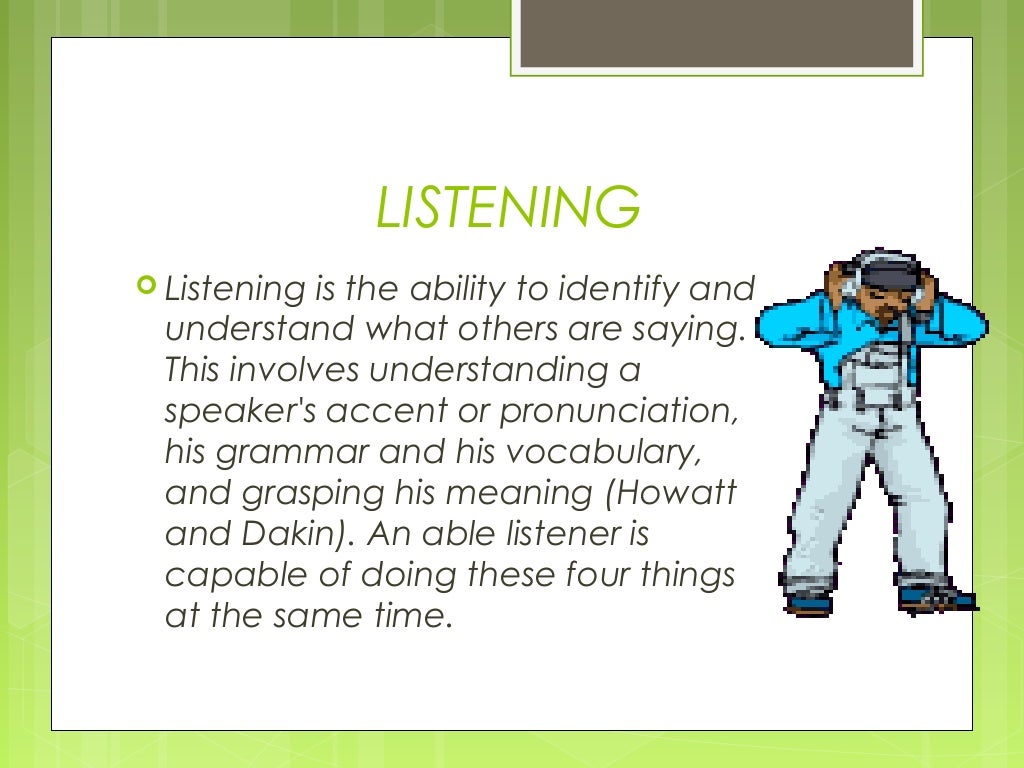
You can respond to their needs, concerns, and emotions in a more meaningful way.

Improved communication: When you listen actively, you can communicate more effectively with others.It enables you to gather information, clarify your understanding, and gain insights you might not have otherwise. Better understanding: Listening allows you to understand better the person or situation you are interacting with.Listening is essential for several reasons: It allows us to connect with others more profoundly and build meaningful connections. Listening is a critical component of effective communication and interpersonal relationships. It can also help resolve conflicts, clarify misunderstandings, and foster meaningful connections with others. It also involves demonstrating interest and empathy through verbal and non-verbal cues, such as nodding, maintaining eye contact, and asking clarifying questions.Īctive listening can be used in various settings, including personal and professional relationships, to improve communication and build trust.

EXAMPLES OF GOOD LISTENING SKILLS FULL
Active listening requires being present at the moment and avoiding distractions or interruptions that may prevent full engagement with the speaker. It focuses on the speaker’s words, tone of voice, body language, and overall message to understand their perspective better.



 0 kommentar(er)
0 kommentar(er)
